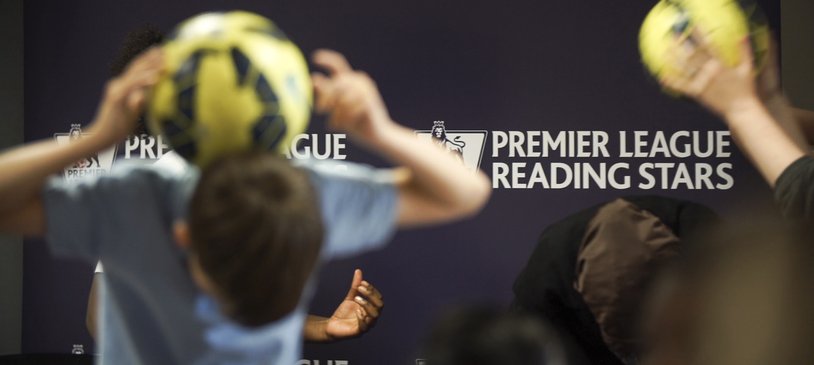Girlington Primary School in the National Literacy Trust Hub in Bradford ran Premier League Reading Stars (PLRS) during the summer term
PLRS is now part of Premier League Primary Stars, which is available for free to every primary school in England and Wales.
Assistant Headteacher, Daniel Walker hoped the programme would help to improve the reading ability and attitudes of pupils in Year 5 and Year 6. “At the launch of the programme in the school assembly, we told pupils that they must write a letter to apply for a place on the team,” said Daniel. “Eleven pupils were chosen because we felt that they would benefit the most from taking part.”
An area in the school library was set up as the PLRS team corner, with tasks and a stadium poster on the wall to track their successes in the different challenges. Daniel used a range of techniques to create and maintain and sense of inclusion and team spirit. “The pupils were allowed to wear their football kits on PLRS days and we also let them take penalty shots with me in goal as a reward for completing challenges,” he shared. “We also offered some football coaching and chances to play matches after the sessions.”
At each fixture the boys quizzed each other about the books they’d read and their interpretations and ideas. Daniel was delighted with the group’s progress after taking part in PLRS. “All boys who took part in the programme made more than expected progress in reading,” he shared. “Two boys made two sub levels of progress, which is the equivalent of more than a year’s expected progress in one term. One boy made dramatic progress of a whole level (3 sub-levels) in a term.”
Participating in PLRS also had a huge impact on the attitudes of the boys, who were very enthusiastic about the programme. Each boy was able to name their favourite book and spoke in great detail about the different activities and reading challenges they had taken part in.
When asked why they thought their reading had improved, persistence was identified as a strong reason. Several pupils described how previously they would skip over difficult words but now they would look them up online or ask a teacher or parents to help them. They all agreed that they now wanted to understand what they were reading rather than just doing it because they had too. “I used to find it hard to have a picture in my head of what was going on and I would give up. Now I keep trying. Sometimes I have to re-read some of the books to get there,” shared one boy.
As well as reading, several pupils also identified positive effects the programme had had on their writing. One boy said that his handwriting was getting better because he had more that he wanted to say, so he was doing more writing and getting better. They all agreed that their vocabulary had also improved, as they knew and used more descriptive words.
The team aspect of the programme was a clear highlight for many of the boys. One said, "I definitely didn’t want to get kicked out of the team,” while another commented, “It was the best thing we’ve done.”
Football boosts pupils' reading and writing skills at Girlington Primary School
